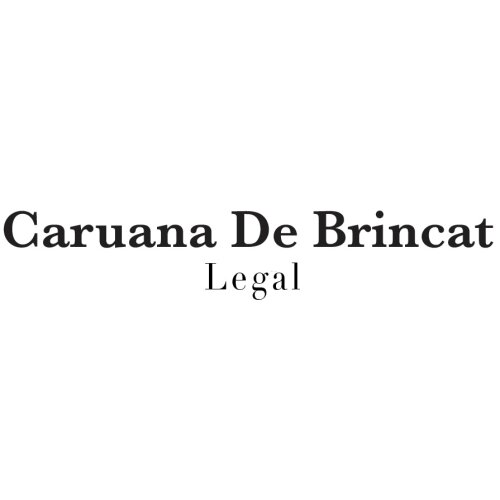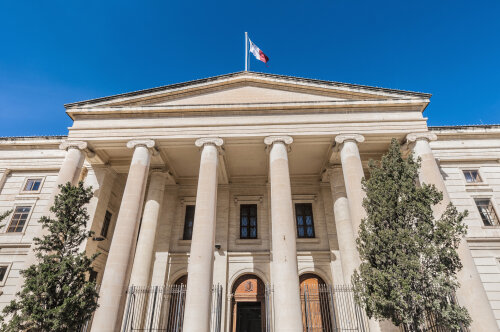Best Merger & Acquisition Lawyers in Malta
Share your needs with us, get contacted by law firms.
Free. Takes 2 min.
Or refine your search by selecting a city:
List of the best lawyers in Malta
About Merger & Acquisition Law in Malta
Merger & Acquisition (M&A) activities in Malta are governed by a combination of local laws, European Union regulations, and international business practices. Malta's strategic location in the Mediterranean, its robust financial services sector, and business-friendly environment make it an attractive venue for both local and international companies seeking expansion or consolidation through mergers and acquisitions. The regulatory framework aims to ensure that M&As are conducted transparently and efficiently while safeguarding the interests of stakeholders, including employees, creditors, and shareholders.
Why You May Need a Lawyer
Mergers and acquisitions are complex transactions that involve multiple legal, financial, and operational aspects. Consulting with a lawyer specializing in M&A is crucial for several reasons:
- Due Diligence: A lawyer can help in conducting thorough due diligence to assess risks and liabilities associated with the transaction.
- Regulatory Compliance: Ensuring the transaction complies with Maltese and EU regulations to avoid legal repercussions.
- Negotiations: Lawyers often play a crucial role in negotiating terms to protect their client's interests.
- Drafting Documents: Preparation of complex legal documents such as contracts, NDAs, and shareholder agreements.
- Post-Merger Integration: Legal assistance in addressing compliance and operational challenges post-merger.
Local Laws Overview
M&A activities in Malta are primarily regulated by the Companies Act, the Competition Act, and the Financial Markets Act. Key aspects include:
- Company Law: The Companies Act governs the formation, management, and dissolution of companies in Malta, including mergers and divisions.
- Competition Law: Under the Competition Act, transactions must be examined to ensure they do not negatively impact market competition.
- Financial Market Regulation: Transactions involving publicly listed companies must comply with Securities regulations under the Financial Markets Act.
- Tax Considerations: M&A transactions may have tax implications, addressed under the Income Tax Act and Double Taxation Treaties.
Frequently Asked Questions
What are the main types of mergers in Malta?
In Malta, mergers typically fall into three categories: statutory mergers, share acquisitions, and asset acquisitions.
How long does the M&A process take in Malta?
The timeline for M&A transactions in Malta can vary significantly, typically ranging from a few months to over a year, depending on the complexity of the deal.
Are there any restrictions on foreign entities acquiring Maltese companies?
While Malta is open to foreign investments, certain sectors may have restrictions to safeguard national interests. It is crucial to check sector-specific regulations.
What role does the Malta Financial Services Authority (MFSA) play in M&A?
The MFSA regulates and supervises financial markets and corporate transactions, ensuring compliance with local and EU law.
Is antitrust approval required for mergers in Malta?
Yes, mergers that could affect market competition require approval from the Office for Competition within the Malta Competition and Consumer Affairs Authority (MCCAA).
What are the common challenges in the M&A process?
Common challenges include regulatory hurdles, valuation disputes, cultural integration, and aligning corporate strategies.
Can a merger be challenged in Malta?
Yes, stakeholders such as minority shareholders or regulatory authorities can challenge mergers if they believe their interests are being compromised.
What happens to employees during a merger?
Employee rights and obligations are generally protected under the Transfer of Business (Protection of Employment) Regulations.
Are there specific disclosure requirements for M&A deals?
Disclosure requirements vary based on whether the company is privately held or listed on the stock exchange, with stringent requirements for listed entities.
How are M&A disputes resolved in Malta?
Disputes can be resolved through litigation, arbitration, or alternative dispute resolution mechanisms as outlined in the transaction agreement.
Additional Resources
For further assistance, consider the following resources:
- Malta Financial Services Authority (MFSA): Provides guidance and regulatory information for financial services.
- The Chamber of Advocates: Offers a directory of licensed legal practitioners in Malta.
- Malta Competition and Consumer Affairs Authority (MCCAA): Oversees competition and consumer rights matters.
Next Steps
If you're considering or involved in a merger or acquisition in Malta, it is prudent to engage a qualified M&A lawyer early in the process. Start by researching legal firms with expertise in M&A and set up consultations to find the right fit for your needs. Prepare all necessary documentation and questions before your meetings to make the most of your consultations. By securing experienced legal counsel, you will be better equipped to navigate the complexities of the M&A landscape in Malta.
Lawzana helps you find the best lawyers and law firms in Malta through a curated and pre-screened list of qualified legal professionals. Our platform offers rankings and detailed profiles of attorneys and law firms, allowing you to compare based on practice areas, including Merger & Acquisition, experience, and client feedback.
Each profile includes a description of the firm's areas of practice, client reviews, team members and partners, year of establishment, spoken languages, office locations, contact information, social media presence, and any published articles or resources. Most firms on our platform speak English and are experienced in both local and international legal matters.
Get a quote from top-rated law firms in Malta — quickly, securely, and without unnecessary hassle.
Disclaimer:
The information provided on this page is for general informational purposes only and does not constitute legal advice. While we strive to ensure the accuracy and relevance of the content, legal information may change over time, and interpretations of the law can vary. You should always consult with a qualified legal professional for advice specific to your situation.
We disclaim all liability for actions taken or not taken based on the content of this page. If you believe any information is incorrect or outdated, please contact us, and we will review and update it where appropriate.
Browse merger & acquisition law firms by city in Malta
Refine your search by selecting a city.















